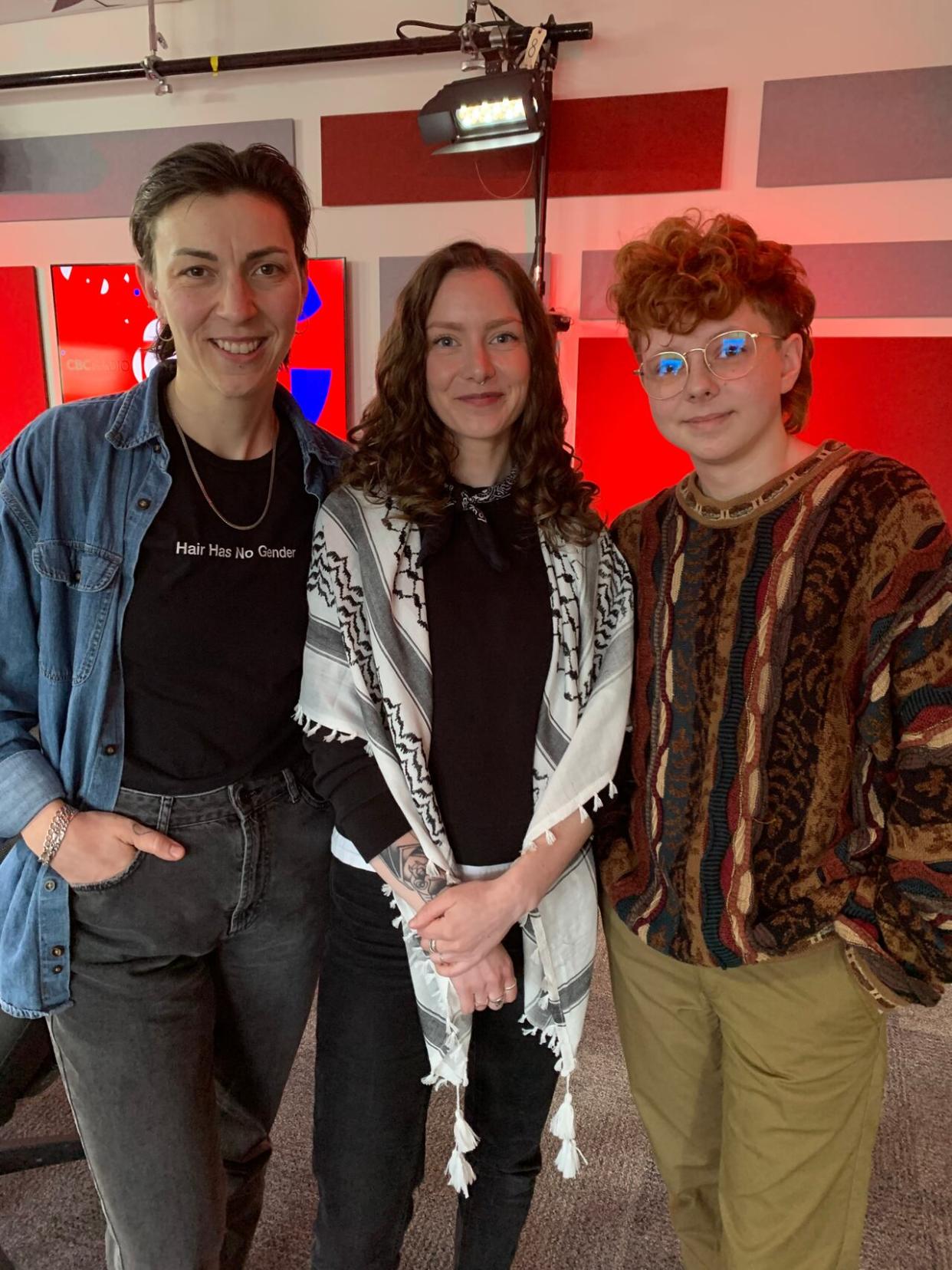These folks are making sure people of all identities can be themselves in photography

A St. John's photography project aims to allow members of the queer, trans and other underrepresented communities feel their best — and feel like themselves.
The goal of Project Power Back, created by photographer Tania Heath, is to serve as a safe space for people of all identities to see themselves how they want to be seen and feel how they want to feel when getting their photo taken.
Heath said the concept came from parts of her own identity journey. Coming out as queer at 30, Heath said, they realized there was something missing in their work — which they discovered through learning to challenge societal norms around gender and the patriarchal system.
"The queer community gave myself the space to really dig deep into, like, 'Who am I? Why do I do the things I do? Is it because I want to do it? Or is it because I'm being pushed?" Heath told CBC Radio's The Signal. "Once I started exploring those and really digging for those answers, and finding out those answers for myself, that's kind of when my photography stuff changed too."
WATCH | See Wednesday's full episode of The Signal:
Part of Project Power Back's mission statement is making sure people feel seen and heard through a feminist, trauma-informed lens.
For hair specialist Emyn Hayden, that starts with consultations.
"We can take 20 minutes if you want to talk about your fringe for 20 minutes," Hayden said. "If that's where we're at, I'm going to meet you there. And I think that consulting in a huge way allows you to meet somebody where they are."
Stylist Ali Pike said creating that comfort also allows people to feel most like themselves, which translates to photos that subjects can feel shows them distinctly.
Pike also said locations are a key part of the process — often working in areas that don't have inherent gender barriers like a barber shop for men or a salon for women.
"Even just to come into the salon sometimes is a barrier for folks. If you don't see yourself represented, then it's very hard to walk into that space with confidence. And especially to talk about who you are or how you want to be represented," Pike said.
"Once you start talking about who you are, as a stylist I feel like they're the cues for me."
Heath said more people get involved with each pop-up event, which she says is great to see as a community continues to grow.
"People coming together, like it's so special for me," she said. "That's the stuff that really fires me up."
Download our free CBC News app to sign up for push alerts for CBC Newfoundland and Labrador. Click here to visit our landing page.

 Yahoo News
Yahoo News 
